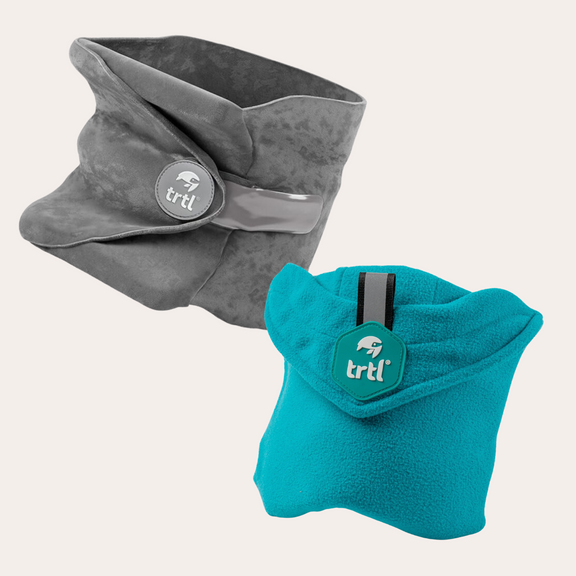Apr 28, 2025
8 Travel Myths You Need To Stop Believing In 2025
By
Sophie Blanchflower
There’s nothing quite like that buzz of booking a holiday, whether it’s a sun-soaked beach escape or a weekend exploring the city.
But as exciting as travel is, there’s a lot of bad advice floating around. From outdated tips to myths that just won’t quit, it’s easy to fall for something that sounds helpful but could actually steer you in the wrong direction.
To help you avoid confusion (and some costly mistakes), we’re busting eight of the most common travel myths still doing the rounds in 2025.
What is a travel myth?
In simple terms, a travel myth is a piece of advice that sounds like it makes total sense but isn’t actually true. These could be things you hear from a friend of a friend, see on an old blog post, or something that’s been around for a while. While they might be based on real experiences or old practices, they’re not always relevant or accurate anymore.
So, what’s the problem? Following this kind of advice can cost you time, money and enjoyment on your trip.
What are the dangers of travel myths?
Travel myths aren’t just harmless travel chatter; they can genuinely derail your plans if you’re not careful.
- It can lead to financial loss — Whether it’s exchanging currency in the wrong place or overpaying for insurance you don’t need, these myths can hurt your wallet.
-
Compromising your safety or well-being — Believing something like ‘travel insurance covers everything’ might mean you don’t have the right protection in place if things go wrong.
-
You can overpay for services — From pricey roaming charges to inflated hotel rates, misinformation can push you towards unnecessarily expensive options.
-
You can miss a good opportunity — Avoiding destinations because they’re ‘too touristy’ might mean you skip some of the best experiences travel has to offer.
- You can set unrealistic expectations — If you’re expecting a free upgrade because you dressed smartly or are planning your entire itinerary assuming everyone speaks English, you might be in for a letdown.
8 travel myths to stop believing in 2025
Lori Delaney, Social Media & Community Manager here at Trtl, separates fact from fiction once and for all.
1. The airport is the best place to convert currency
It might seem convenient to swap your cash once you’re through security, but it could end up costing you.
Why it’s a myth — Airport exchange desks usually have some of the worst rates around. They rely on travellers making last-minute decisions or forgetting to exchange their money before they travel, hence the hike in price.
What to do instead — Lori says, “You’re paying for convenience, not value. Look into converting your currency before you fly, or even opt for using a fee-free travel card when you’re abroad. Even local cash machines inside shops in the country you’re visiting can sometimes offer better rates than the airport counter.”
2. Popular destinations are no-gos
Big-name destinations often get a bad rep for being overcrowded or overrated — but that doesn’t mean you should rule them out!
Why it’s a myth — Tourist hotspots like Paris, Venice or Bali are popular for a reason; they’re genuinely stunning and full of new cultures to explore. Yes, they can get busy, but that doesn’t mean you won’t enjoy them.
What to do instead — Lori says, “It’s all about timing. Travel during the off-peak seasons — think April, May, September and October, and get up earlier to visit popular sights and explore lesser-known locations to beat the crowds. You don’t have to go completely off-grid to have a unique experience.”
3. English is spoken everywhere
Although 1.52 billion people speak English worldwide, it’s not guaranteed that everyone will speak it everywhere you go.
Why it’s a myth — Relying solely on English can leave you stuck in situations where communication is tricky, especially in smaller towns or more remote locations.
What to do instead — “Learning a few basic phrases in the local language can go a long way,” says Lori. “It shows respect and can really improve the way the locals interact with you. Plus, it’s fun to learn something new, even if it’s just a few of the most popular phrases!”
4. Booking a holiday in advance is the only way to get a cheap deal
This one’s been around forever, but it doesn’t always hold up.
Why it’s a myth — Booking early can sometimes help you save, especially during peak travel seasons like the summer holidays. But flexible travellers can score some incredible last-minute deals, too!
What do instead — “If your dates and destinations are flexible, it pays to keep an eye on last-minute deals,” explains Lori. “Airlines and hotels often drop prices to fill up remaining spaces, which means you can swoop up some great offers.”
5. Travel insurance only covers trips abroad
Think you don’t need insurance, even if you’re opting for a staycation? Think again.
Why it’s a myth — Travel insurance isn’t just for international trips. If your domestic holiday is cancelled, delayed, or disrupted, you could still be left out of pocket.
What to do instead — “You can absolutely get travel insurance for UK breaks,” says Lori. “It can cover you for things like cancelled trains, lost luggage, or even last-minute illnesses that mean you — or someone in your party who’s covered under the policy — can’t make it.”
If you travel a lot, it may be a good idea to consider getting an annual policy that covers both UK and overseas trips, as it could save you money in the long run.
6. Roaming charges are cheap
Many people assume their phone plan includes international roaming, but that’s not always the case.
Why it’s a myth — While some networks do include free roaming in certain countries, like the EU, charges can add up fast if you’re outside of these zones or unaware of your data usage.
What to do instead — “Always check your mobile provider’s roaming policy before you travel,” Lori warns. “To avoid a nasty surprise on your next phone bill, look into local SIM cards, eSIMs, or portable Wi-Fi hotspots instead. They’re often cheaper and a lot more reliable!”
7. Package holidays are more expensive than booking flights and hotels separately
The DIY approach might seem cheaper, but it isn’t always the better deal.
Why it’s a myth — Tour operators often negotiate bulk discounts with airlines and hotels, which can make package holidays surprisingly cost-effective, especially to popular destinations.
What to do instead — “It’s always worth comparing,” says Lori. “Check the total cost of booking separately versus a package deal, especially for trips to beach resorts or ski destinations. Plus, package holidays often include extras like transfers or all-inclusive options, and many come with ATOL protection, which gives you added peace of mind.”
8. Travel insurance covers scams
You might assume you’re covered for anything when you buy travel insurance, but sadly, that’s not always the case.
Why it’s a myth — Most travel insurance policies focus on things like medical emergencies, lost luggage, or cancellations. Financial losses due to scams usually aren’t covered unless there’s a very specific clause.
What to do instead — “Read your policy carefully,” Lori advises. “Some plans may cover related costs — like emergency accommodation or replacement documents — but they most likely won’t refund money that’s been lost in a scam. When in doubt, ask your provider exactly what’s covered.”
How to spot common travel myths
Want to avoid falling for dodgy travel advice in the future? Here are our top tips and tricks to watch out for:
-
Check the source — Is it a reliable, up-to-date travel blog, or a five-year-old Reddit thread? Make sure your advice is coming from a recent and trustworthy source.
-
Watch out for outdated information — Travel rules and policies change all the time. What was true in 2018 might be totally different now. Brexit meant a lot of change for UK travellers.
-
Always read the small print — Always check the fine print on bookings, insurance policies, roaming plans, and anything else related to your holiday, so you know exactly what you’re getting.
-
Ask experienced travellers — First-hand experiences beat assumptions. Forums like TripAdvisor or speaking with recent travellers can give you proper insight and understanding.
- Double-check with official sources — Government travel sites, official tourism boards, and insurance providers are your best bets for accurate and up-to-date advice.
Travel smarter with Trtl
Ditch the myths, pack the facts, and travel with confidence. At Trtl Travel, we’re here to help you make the most of every journey, whether it’s your first big trip or fiftieth!
Need some extra comfort along the way? Our Trtl Travel Pillow is a must-have for long-haul flights, road trips, and everything in between. And, if you’re looking to stay organised while on the move, our Packing Pods have got your back.
Head over to our blog page to find out more about everything there is to know about travel, from how to beat the post-travel blues to unusual holiday laws you might be breaking!


















